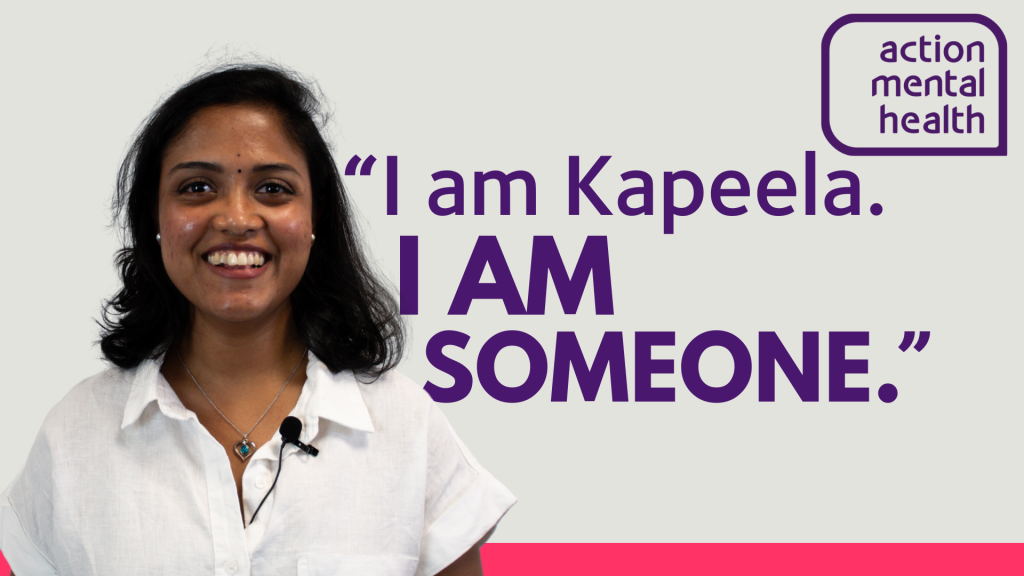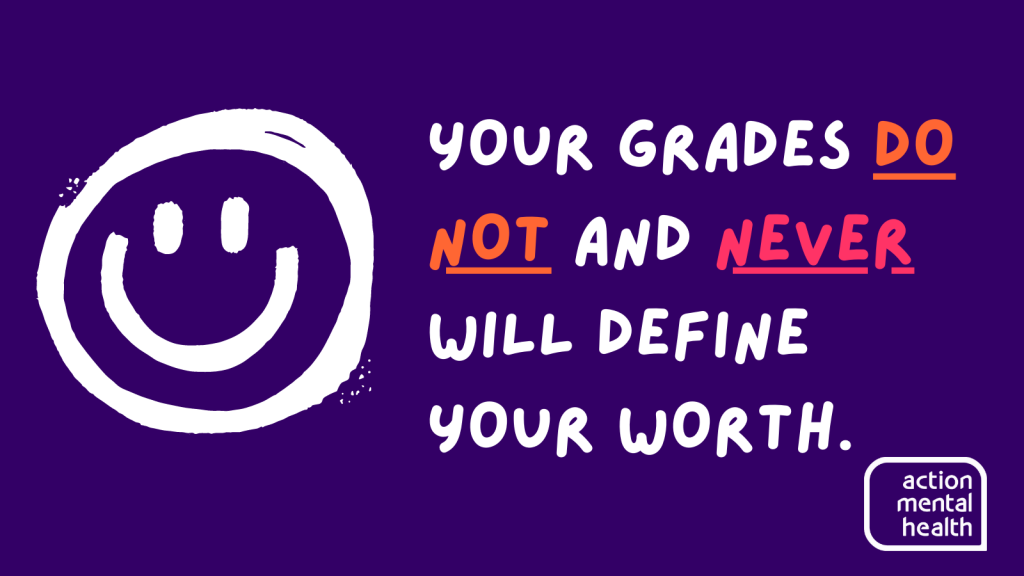While Christmas is traditionally associated with merriment and good cheer – a time for getting together with friends and family for celebration – many people struggle with their mental health at this time of year, for a variety of reasons.
Whether it’s loneliness due to the prospect of facing Christmas alone, financial stress, depression or Seasonal Affective Disorder (SAD), these are just some of the reasons why our mental health can suffer during the holidays. However, it’s important to understand that, if you or someone you know is struggling at Christmas, you’re not alone – and there are things that can help you cope and make things more manageable.
Managing stress and anxiety at Christmas
According to research from YouGov (2019), more than two-in-five people feel stressed during December, with anxiety affecting three-in-ten. Meanwhile, a quarter of people said they had felt depressed over Christmas, while just under a quarter felt lonely during the festive period.
“Feeling low around Christmas is especially common among people who are unemployed (38%), divorced (35%) or widowed (31%). It’s less so, but not unusual, for parents with kids living at home (23%).” (YouGov, 2019).
In addition to this, people aged between 25-34 years old are more likely to experience anxiety and loneliness (31%-40%), with women being more prone to mental health issues in general at Christmas time (51%).
If you already experience anxiety, then the busyness of the festive season can heighten this even more, what with events, visiting friends and family, buying gifts and the general intensity of the season. Increased traffic, people, lights and noise when you’re out and about can also trigger anxiety and led to overwhelm. It can therefore be helpful to bear the following points in mind, if you feel yourself getting anxious or, indeed, want to minimise anxiety at this time of year:
- Plan ahead: If you’re going Christmas shopping, choose quieter times like early in the morning or later at night – and pick a location you know is going to be less busy. Alternatively, avoid the crowds altogether and shop online – you can still support local businesses this way and prevent the risk of getting overwhelmed in busy shops.
- Know the signs: If you suffer from anxiety on a regular basis then you’ll be aware of what triggers this and the symptoms that present, but some people may only experience anxiety at certain times like Christmas, when life is particularly hectic. Signs of anxiety can include feeling faint, dizzy, disoriented or struggling to catch your breath, as well as having an increased heart rate (racing heart), feeling paranoid, fearful, tense or excessively worried. When anxiety hits, you can try to ground yourself by focusing on the present moment and noticing what’s around you – name five things you can see, hear or taste, for example. Taking deep breaths – extending your exhalation so that it’s longer than your inward breath – will also help to calm your nervous system. Removing yourself (when you feel able to do so) from the environment e.g. leaving the shop to get fresh air or even just sitting down if you feel faint, can all help to manage your anxiety in the moment as well.
- Set realistic expectations: Christmas can invite comparison with other people as we see images on social media of what others are getting up to, or from what we see around us in the day-to-day. However, it’s worth remembering that we never see the full picture with anyone and comparing your Christmas to someone else’s runs the risk of making you feel anxious, if you feel that you aren’t meeting self-imposed or so-called social standards. Being realistic about everything from family gatherings to present-buying and festive activities will help to reduce anxiety and take the pressure off.
- Practice self-care: Remembering to take time out for yourself – stepping away from the hustle and bustle and prioritising rest and relaxation – will help to manage anxiety. Say ‘no’ to things that might overwhelm you and limit what you do over the festive season. While you may not be able to avoid the busyness of the holidays completely, you can do what you can to minimise the triggers of anxiety. Eating well and not overindulging too much, talking to someone you trust and sticking to as much of your normal routine as possible can also help.
Sarah Grant-Jones, Head of Clinical Services within Action Mental Health’s counselling service, said it was important to manage expectations over Christmas.
“Family holidays can be wonderful but very intense,” she said. “People can feel the pressure to have the perfect Christmas – but there’s no such thing. The work we do with our clients is to help them manage their expectations around Christmas. It might not be quite how they expect it to be, so it’s about how to manage that if it’s not.
“I think it’s really about knowing yourself and being aware of what works for you. There’s going to be lots of thoughts and feelings that come up around Christmas-time. It’s a very emotive time – and can be like this for lots of different reasons, for example, if someone has experienced a bereavement at this time of year. You have to be aware of that and work with it personally or within your family. Be aware that you may experience lots of different thoughts and feelings over the Christmas period – and prepare for that.”
Anxiety can be one of the main symptoms of stress, along with feelings of overwhelm and finding it difficult to make decisions. Being restless and having a constant sense of dread or underlying worry can also be symptomatic of stress, so it’s important to be aware of these signs and to look out for yourself over Christmas.
Stress can particularly affect women over the festive season: “Christmas is especially tough on women’s mental health. While women are only 4% more likely to say Christmas affects them negatively, the difference is more glaring when it comes to stress and anxiety. While … 35% of men have felt stressed around Christmas, for women the figure is 51%. Over a third of women also say they’ve felt anxious, whereas less than a quarter of men say the same.” (YouGov, 2019).
Doing what you can to minimise stress – for example, setting spending goals for gifts, asking people for help with dinner preparations, taking time out for yourself and avoiding comparison with others – can all help to reduce stress.
“If you experience anxiety or low mood, then it’s about being aware of what triggers that – and the pressure points for you,” said Sarah. “Give yourself time for how you’re going to cope with things. For example, with social anxiety – how would you feel about attending that party or big family event? It’s about thinking through what potentially may be an issue for you and knowing that, whatever you’re thinking, is ok. Give yourself permission to feel that.”
Depression at Christmas
If you have depression, then Christmas can be a difficult time to navigate, particularly when everyone around you appears to be happy and the season sets an expectation for this. It can also be hard trying to explain to others that you feel low, even at Christmas, if they don’t understand the symptoms of depression or how it affects you.
Struggling with feelings of hopelessness and worthlessness, anxiety, intense sadness and low energy can all be symptoms of depression, along with fluctuations in appetite. Seasonal Affective Disorder (SAD) can also strike at this time of year – either on top of pre-existing depression or as a standalone form of depression that some people only experience in winter. SAD – also sometimes referred to as the ‘winter blues’ – is low mood caused primarily during December, January and February due to reduced exposure to sunlight during the darker days of winter.
To help you or someone you know cope with depression over Christmas, here are a few tips on what may help:
- Talk to someone: Discussing how you feel with someone you trust will help share the burden and make you feel less alone. If you isolate yourself then you can become stuck in your thoughts, which can create a vicious cycle of low mood. Talking to a friend or family member, however, can help prevent a downward thought spiral and ground you in the present moment. Explaining how you feel can also help you set boundaries with other people at Christmas and help them understand how they can support you.
- Stay in touch with people but know when to say ‘no’: Isolating yourself can contribute to low mood, especially if you already experience depression, so it’s important not to cut yourself off from people completely over Christmas. If possible, maintain contact with trusted friends and/or family but avoid overwhelm by choosing when you socialise i.e. you don’t have to accept every invitation you receive – be selective. Setting boundaries will safeguard your mental health while also helping you stay connected, so your low mood doesn’t spiral, as being with other people grounds us and makes us feel less alone.
- Be active: Keeping active helps to boost our mental wellbeing, so sticking to routines like going for a daily walk and just getting outside is important, especially at Christmas when schedules change with the holidays.
- Know your limits: If you’re struggling with depression of any kind, then this is something you will also need to manage throughout Christmas. Recognising this and removing any pressure to ‘feel better’ over the festive season is important. Know what you can manage and how to handle the holidays in the best way for you. Placing unnecessary pressure on yourself to ‘do Christmas’ like those who don’t have depression is unfair on yourself and sets unrealistic expectations.
“It’s about acknowledging what’s going on for you and validating that; knowing, ‘what will help me to lift my mood?’” said Sarah.
“It’s good to have a repertoire of coping strategies to hand, or kept on your phone. For example, maybe time-out helps you cope. And – be kind to yourself. Allow yourself the opportunity to not do more than you feel you want do or are able to do. It’s ok not to be ok – and if you don’t feel ok, reach out.”
Alleviating loneliness during the festive season
Christmas festivities can exacerbate feelings of loneliness during the holidays, especially if you’re spending it alone, are divorced, separated, single or have recently been bereaved. Feeling like everyone else is having a great time together can also make you feel even more alone, even if perceptions based on what you see online or on the street aren’t always accurate.
Loneliness can co-exist alongside various mental health issues and can become a more serious problem itself, if left unaddressed. That’s why, if you or someone you know is experiencing loneliness – or anticipate it over Christmas – there are things which can help to alleviate it.
- Connect with people: Whether it’s volunteering at your local animal shelter, visiting a friend or going out for a walk and just saying hello to people, find ways to avoid isolation. Spending time with people boosts our wellbeing and helps us feel less alone, while having a conversation with someone about anything at all can lift our mood and ground us in the present moment.
- Structure your days: If you’re lonely and are also coping with a bereavement at Christmas, then this can make the holidays even more difficult to navigate. Planning your days and giving them a structure can help, while walking/exercise that gets you moving and outside, rather than sitting indoors watching TV all day, can also help to support your mental wellbeing.
- Practice self-care: From saying ‘no’ to invitations and giving yourself time to rest, to planning activities you enjoy and removing any guilt you may feel about putting yourself first, practising self-care will help prevent overwhelm over Christmas.
- Ask for help: Even during the holidays, support from the Samaritans is always available, while Cruse Bereavement Care also provides support for those who are grieving (check online for opening hours).
“We have a safety plan that we use with our clients, with three things people can do to help work with their thoughts and feelings,” said Sarah. “For example, have three people you can contact if you need to. Think about who you can reach out to and where you can go for help.
“There are also sources of support available over the holiday period. Sometimes, it’s just about being in someone’s presence or talking to someone. We would always say to children and young people to go to a trusted adult.”
Keep Christmas on track
Taking things in moderation, avoiding comparison, practicing self-care and staying connected with people are just some of the ways you can look out for your mental health this Christmas. Whether it’s in relation to yourself or someone you know, being aware of the signs of poor mental health and knowing what to do to minimise triggers can help.
Meanwhile, setting boundaries around activities and knowing your limits for socialising can also support better wellbeing at Christmas, without isolating yourself. Talking with someone who you trust and explaining how you feel about the festive season can also help to make Christmas more manageable. Ultimately, being kind to yourself is key.
If you are in crisis or distress, please remember that Lifeline operates 24/7 throughout the holiday period – you can call them and talk to a trained counsellor on: 0808 808 8000.
The Samaritans can also be contacted 24/7 by calling: 116 123.
For young people, Papyrus operate HOPELINE247 at: 0800 068 41 41.
Contact Childline on: 0800 1111.
Reference:


















